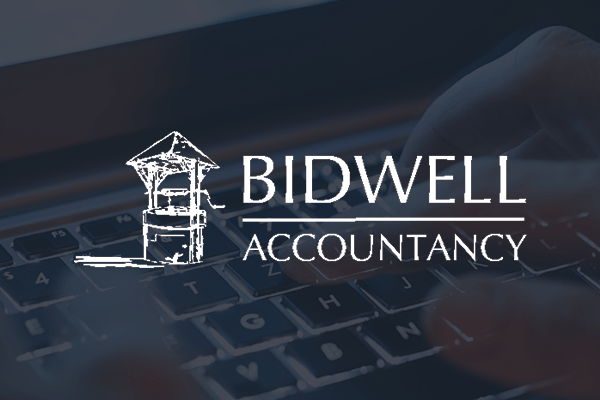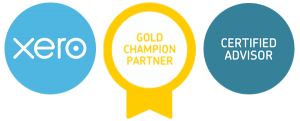Newsletter - August 2021
VAT - Second-hand cars - using the Margin Scheme
If you sell second-hand vehicles and you were not charged VAT when you purchased the vehicle, using the Margin Scheme will save you money.
If you did not use the VAT Margin Scheme, you would have to account for VAT on the full selling price of each vehicle.
However, if you use the Margin Scheme, you can account for VAT on the difference between the price you paid for a second-hand vehicle and the sales price when you sell the car.
If you sell a vehicle for less than you paid for it, you will not have to account for any VAT on the sale.
You do not have to use the Margin Scheme, it is optional.
If you decide to use it, there are conditions you will have to meet. If you cannot meet all the conditions, you cannot use the scheme.
The main conditions published by HMRC are:
- the vehicles must be eligible,
- you must have acquired the vehicles in eligible circumstances - in most cases, this means that you have obtained eligible vehicles for resale in circumstances where VAT was not chargeable,
- you must calculate the margin in accordance with the rules of the scheme, there are special rules about how to calculate your buying price, your selling price and your margin under the scheme, your margin may not be the same as your profit margin,
- you must meet the record-keeping rules of the scheme, there are special rules about invoicing and stock records.
Business entertaining and tax relief
Expenditure on business entertainment is not allowable as a deduction against profits. Nor may a deduction be made for any expenditure which is incidental to business entertainment.
The meaning of ‘incidental’ is not defined by HMRC but should be interpreted to mean any expenditure that is incurred directly or indirectly in connection with the provision of entertainment.
This might include payments to a third party for the organisation of entertainment or the costs of issuing invitations to customers. It will also include the cost of maintaining assets, such as yachts, which are used for business entertainment purposes.
Traders may obtain entertainment through barter arrangements in which their own goods or services are exchanged for hospitality. The amount to be disallowed is the larger of:
- the value at which the transaction is recognised in the profit and loss account, and
- the cost of the goods or services exchanged for business entertainment.
Sponsoring a charity
Charity sponsorship payments are different from donations because your company gets something related to your business in return.
Typically, your business brand would be promoted by the charity in some way.
You can deduct sponsorship payments from your business profits before you pay tax by treating them as business expenses.
Payments qualify as business expenses if the charity:
- officially supports your products or services,
- allows you to use their logo in your own printed material,
- allows you to sell your goods or services at their event or premises,
- links from their website to yours.
If you are unsure whether a charity payment qualifies as a sponsorship payment or a donation, contact the HMRC charities helpline, 0300 123 1073.
Tax-free property and trading income
You can claim up to £1,000 each tax year in tax-free allowances for property or trading income. If you have both types of income, you will qualify for a £1,000 allowance for each.
If your annual gross property income is £1,000 or less, from one or more property businesses you will not have to tell HMRC or declare this income on a tax return. You may be required to complete a tax return for other income.
Likewise, if your annual gross trading income is £1,000 or less, from one or more trades you may not have to tell HMRC.
If your annual gross trading or property income, from one or more trades or businesses is more than £1,000 you can use the tax-free allowances instead of deducting any expenses or other allowances.
This would be useful if your actual expenses were lower than the £1,000 allowances. However, you cannot use the allowances to create a trading loss. You can deduct up to £1,000, but not more than the amount of your income. This is known as ‘partial relief’.
If your expenses are more than your income it should be beneficial to claim expenses instead of the allowances.
You cannot use the allowances in a tax year, if you have any trade or property income from:
- a company you or someone connected to you owns or controls,
- a partnership where you or someone connected to you are partners,
- your employer or the employer of your spouse or civil partner.
You cannot use the property allowance if you:
- claim the tax reducer for finance costs such as mortgage interest for a residential property,
- deduct expenses from income from letting a room in your own home instead of using the Rent a Room Scheme.
Tax Diary August/September 2021
1 August 2021 - Due date for Corporation Tax due for the year ended 31 October 2020.
19 August 2021 - PAYE and NIC deductions due for month ended 5 August 2021. (If you pay your tax electronically the due date is 22 August 2021)
19 August 2021 - Filing deadline for the CIS300 monthly return for the month ended 5 August 2021.
19 August 2021 - CIS tax deducted for the month ended 5 August 2021 is payable by today.
1 September 2021 - Due date for Corporation Tax due for the year ended 30 November 2020.
19 September 2021 - PAYE and NIC deductions due for month ended 5 September 2021. (If you pay your tax electronically the due date is 22 September 2021)
19 September 2021 - Filing deadline for the CIS300 monthly return for the month ended 5 September 2021.
19 September 2021 - CIS tax deducted for the month ended 5 September 2021 is payable by today.

Unit 157, Milton Keynes Business Centre,
Foxhunter Drive, Milton Keynes,
Buckinghamshire, MK14 6GD
Bidwell Accountancy





